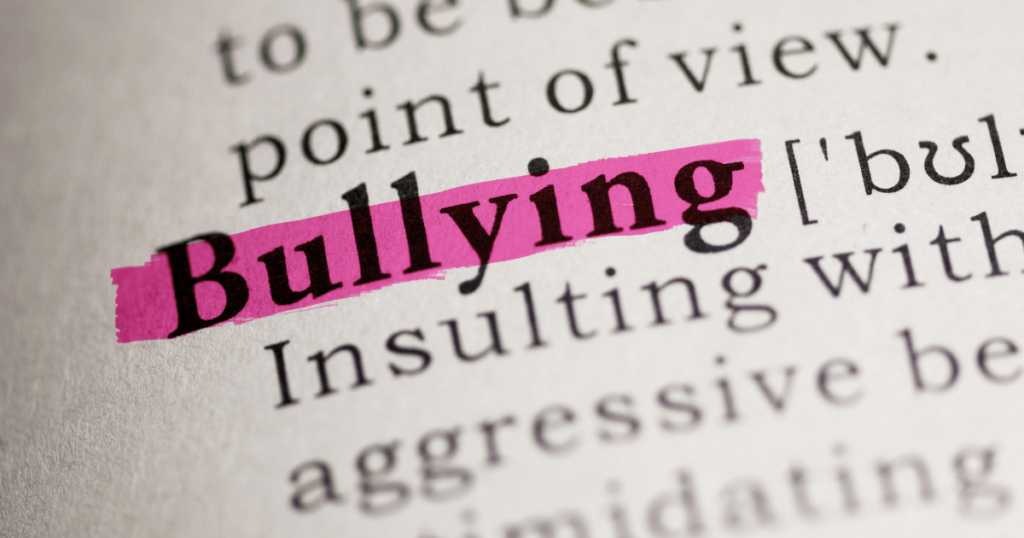We all grow up experiencing or hearing about some forms of bullying; There are even preconceived notions about bullies and their parents. Bullying has always been a problem, and approximately 20% of students ages 10-18 will experience bullying. That number is even higher when you factor in cyberbullying. This isn’t to say younger children aren’t bullies or being bullied, because despite how much we try to teach our children the best behavior, bullying can happen at any age.
Is Your Child A Bully?
People are aware of how dangerous bullying is, and that is why we always tell our children to speak out when they are bullied. We try everything to help them avoid being bullied. No one wants their child to be bullied. However, what if your child was the bully? Have you ever thought of that? No parent wants to admit that their child could potentially be a bully. This is every parent’s nightmare. But are you aware of the signs that your child is turning into a bully?
Research shows that bullies are significantly more likely to be depressed, struggle in school, and have lifelong behavioral issues. When a bully gets away with bullying, they typically don’t grow out of it but rather develop a life-long habit of abusing others. That is why it is important to recognize the signs early, not ignore other parents’/children’s comments about bullying, and get help to support better behavior for your child.
7 Signs That Your Child Might Be a Bully

Acts of Violence
If you notice that your child seems to have positive views regarding violence, then it may be a sign that they are turning into a bully. They may be supporting bullying because they are engaging in it or are planning to engage in it. They may also hang around other children who bully others as well. This isn’t to say a little rough-housing isn’t normal, but mentioning wanting to physically harm or “beat up” another child is a concern that needs to be addressed asap.
The best place that can tell you of your child’s aggression is school or daycare. Your child may start to get into a lot of trouble at school whereby he or she may be getting into fights with kids and teachers. Your child may be feeling very dominant because they feel like they can bully anyone.
Lacks Empathy
One of the biggest signs that your child is becoming a bully is when they do not show empathy, or they show as little of it as possible. One of the reasons a bully is able to manipulate or dominate others is because of their lack of compassion and disregard for the feelings of others. They are unable to look at the situation from a perspective outside of their own.
If your child is not empathetic towards those who are bullied, it may be because they see nothing wrong with the actions of the bully since they may be doing the same. If you think your child might lack a sense of empathy, talk to them about the importance of respecting other people’s feelings. Encourage activities that put them in empathic positions i.e. volunteering, sports, camp, etc.
Extremely Competitive
While being competitive is a good thing for a child, it can start to create bullying tendencies. A very competitive child may resort to bullying to ensure he or she always wins. If your child is highly competitive, then you may look out for the other signs to know whether his competitive nature is harmless or whether bullying accompanies it. Learning good sportsmanship is always key in competition: it is important for your child to understand winning or losing isn’t something to lash out and bully others about.
Verbally Abusive
Bullying can take place physically, verbally, or both. Therefore, a verbally abusive child can turn into a bully. That is why you need to find out why your child is verbally abusive and whether it is because they are becoming bullies.
Sometimes as parents, we need to look inwards and see if children are learning things from us or other adults. Verbally abusive language may be something your child has witnessed or experienced from other adults or children, which is why it is important to follow up about where your child is learning this language. It is also crucial to consider what media, tv, or video games could be contributing to these behaviors as well.
Need to Be in Control
Bullying is an effort to exert control over others. Bullies are well aware of the social structure at their schools. This may be seen in children who deeply desire to be “popular”. The concept of being popular isn’t inherently bad, sometimes a star athlete is popular just because they are well-known. But when your child is seeking attention in the form of popularity exclusivity is where it becomes a problem.
The attention a bully receives for “being popular” depends on picking on other kids. The goal is for the target to carry out the bully’s specific request. The bully will probably get angry and upset if the target refuses to submit to their authority. If this sounds like a pattern your child falls into with other kids, then it may be a serious bullying problem.
Lack of Responsibility for Actions
If you try to confront your child about suspected actions and they decide to place the blame on others, they may be trying to hide the situation. Sometimes situations are a combination of individuals’ actions and other times, your child may be telling the truth that it wasn’t their fault. So make sure you get the entire story if you can. Ask the other children, ask parents, and ask teachers for their input.
Bullies frequently place more blame on others than on themselves. They enjoy making excuses for their behavior based on anything that has been done to them or something that the victim may have said or done. They hardly ever, if ever, admit that they were wrong in any circumstance.
They May Also Be Victims of Bullying
At the end of the day, your child may be a bully because of being bullied. In an effort to reclaim some of the self-confidence they have lost as a result of bullying, victims will occasionally resort to bullying. They could believe that the only way to advance in their school’s popularity is through bullying, or that the only way to end bullying is to bully others back. Parents of bullied children must make sure their kids understand that bullying is never acceptable.
If your child is a victim of bullying, it is important to provide them with the support they need. If you feel like this issue stems from school, ask teachers or parents to meet with you to discuss your bullying concerns. Let your child know you are there for them and that there is nothing that can’t share with you about their bullying experiences.
It is our responsibility as parents to not only protect our children from bullies but to ensure that our children are not the bullies. If every parent could stop their children from bullying others, we would have no bullies. That is why you need to know these signs so you can identify them and correct your child in time.



